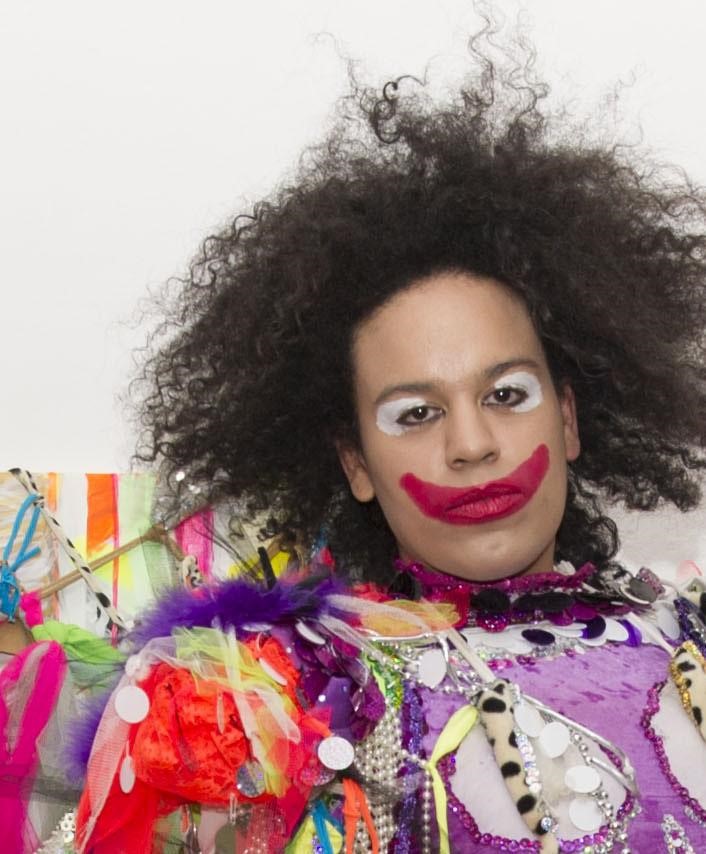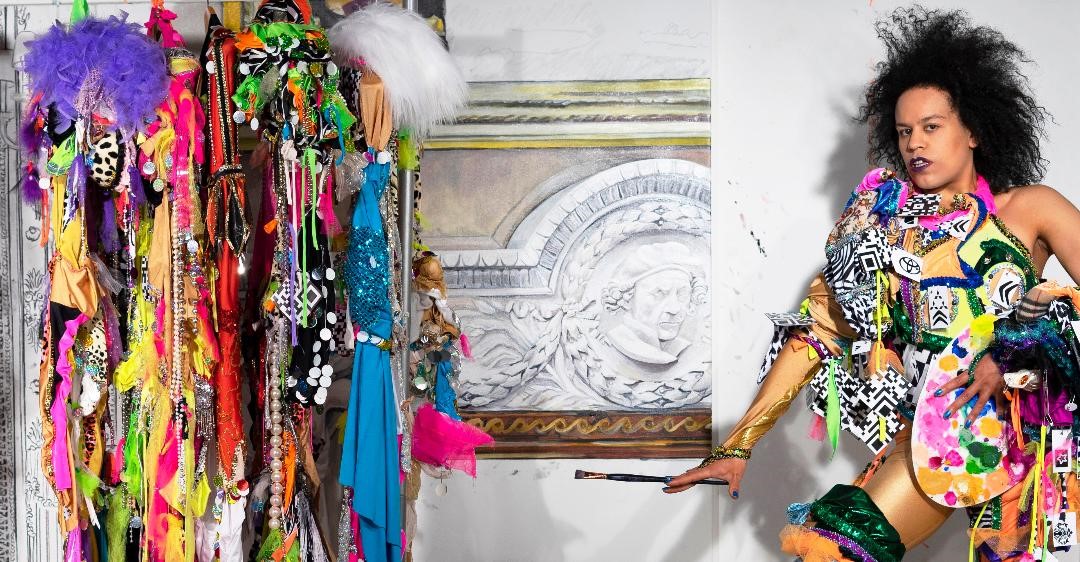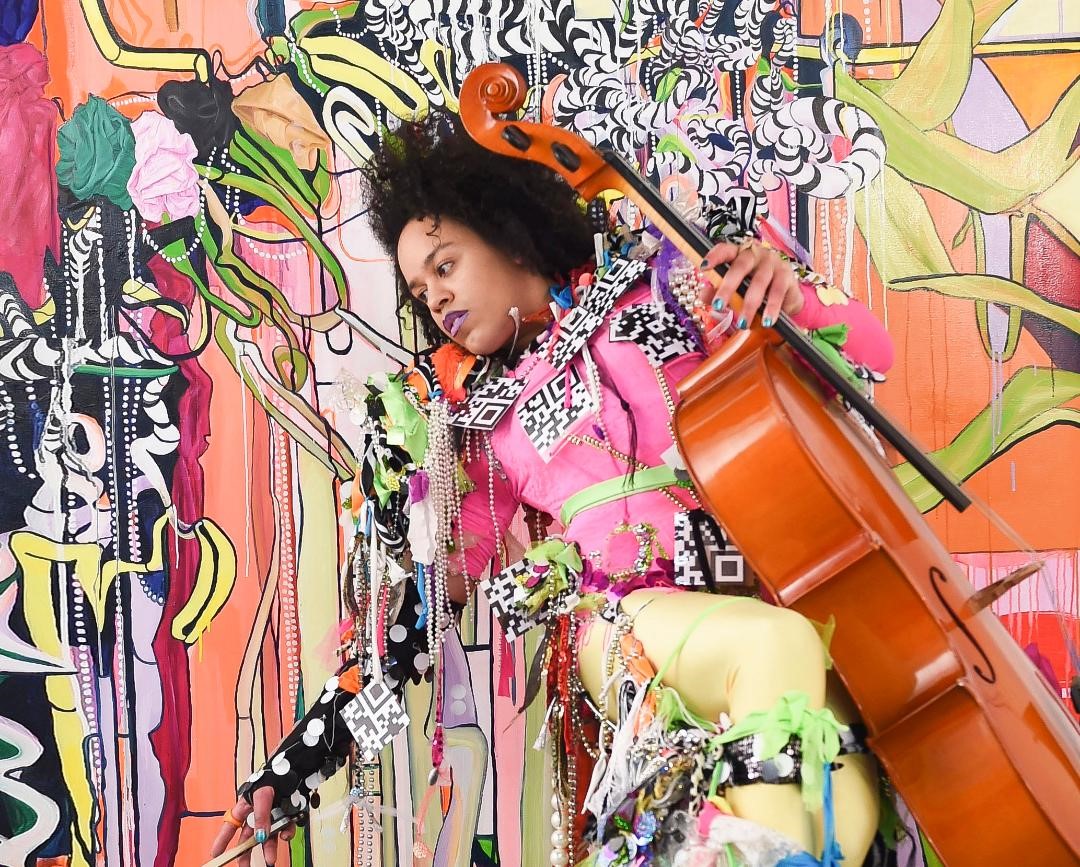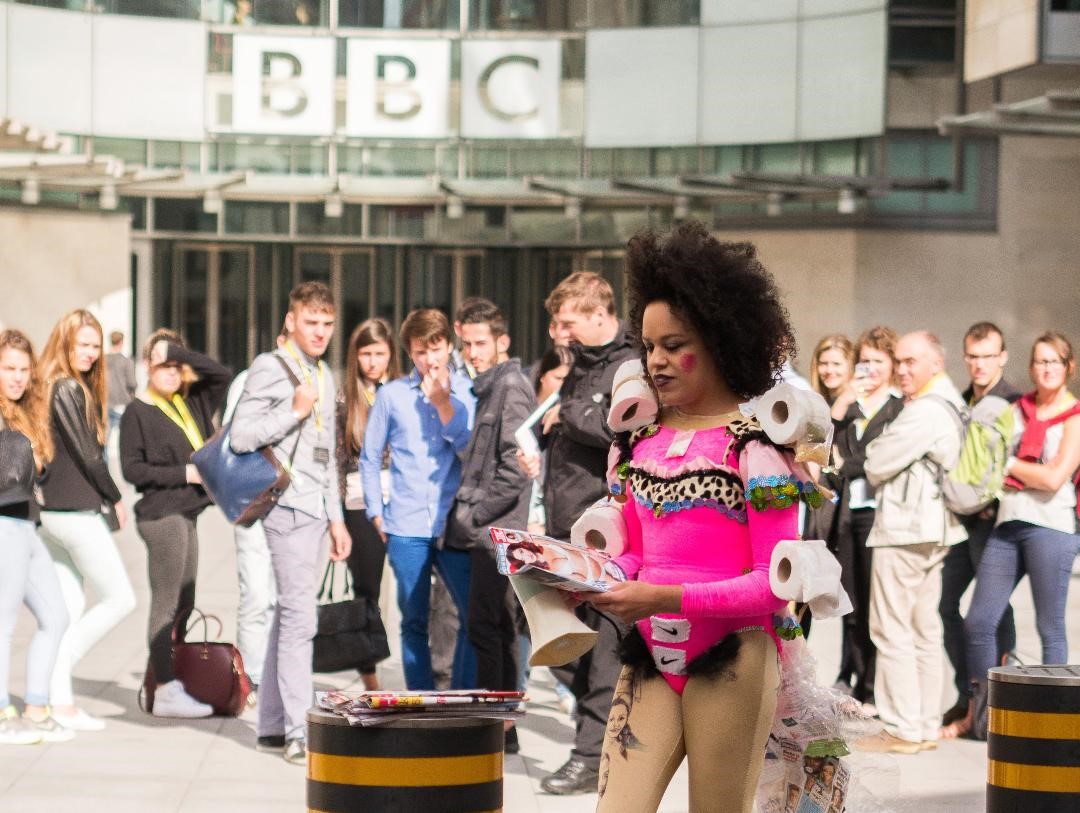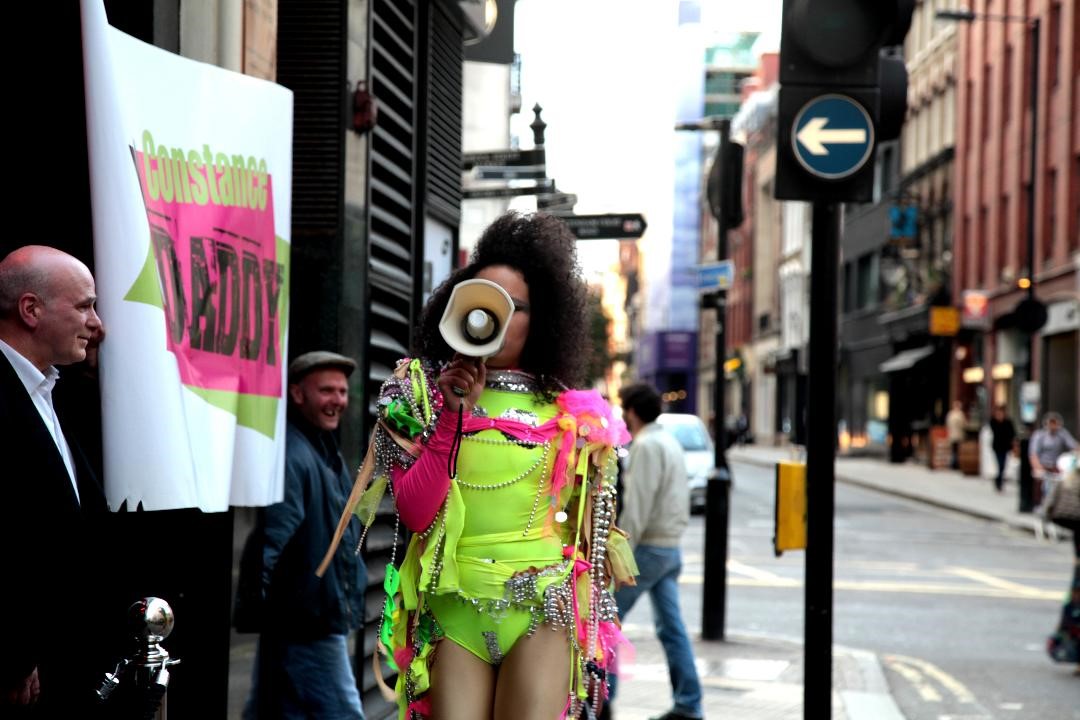Jennifer Allen, known professionally as Quilla Constance (abbreviated: QC) is a British contemporary artist, lecturer, and curator. QC’s interdisciplinary practice has shown widely in the UK and overseas, at venues including Camden Arts Centre, Zabludowicz Collection, ICA, Freud Museum, The RA, Jerwood Arts, and Van Abbemuseum. QC is now creating new art for her socially engaged project ‘Teasing out Contingencies’ at Tate Exchange, Tate Modern 2019-2020. The project will tour to The Higgins Bedford, Sir William Harpur Gallery in 2021-2022
SP:Brief Introduction and early education inspirations?
QC: My current professional name is Quilla Constance (abbreviated QC), which is an art persona I’ve cultivated and deployed since 2009. My birth name is Jennifer Allen, and the name I operated under from 2001-2009 after graduating from my BA at The Ruskin, University of Oxford, and my MA at Goldsmiths. I’ve always enjoyed and appreciated diverse forms of artistic expression: drawing, painting, costumes, installation, and performance. I learned to play classical cello (Suzuki method) at school from the age of 7, and on the weekends I attended IDTA Freestyle Disco and Latin American dance classes, in a 1930’s Grade II listed wooden hut near my home in Birmingham – I think the classes costed 50p, and at the time, back in 1987, I couldn’t have known how beneficial this training would prove to be in the development and staging of my interdisciplinary art practice as QC. Through dance school, I was afforded opportunities to enter competitions at The Blackpool Tower Ballroom where dancers would wear lavish costumes. They were very expensive, and I couldn’t afford them, so I began making my own from sequins, feathers, and beads I’d collected from the floor at these events – I’d also cut up my clothes and fashion them into outfits for myself and my friends to wear. I always knew I wanted to read degrees in art, rather than dance or fashion, because I’ve always been interested to conceptually direct, produce and perform my own projects, and to activate an independent art practice to communicate pertinent ideas. Art school afforded me an invaluable critical environment in which to paint, draw, perform, and develop costume installations concurrently.
SP: What are you currently working on? How has the ongoing pandemic and its effects on everyday life affected your practice?
QC: I’m caught in the midst of the COVID 19 pandemic in the UK, so I’m currently in lockdown, in my art studio, creating a vast new figurative oil painting and a series of costumes for the next phase of my ongoing project ‘Teasing out Contingencies’ at Tate Exchange, Tate Modern. The project is funded by Arts Council England and Bedford Creative Arts and will tour to The Higgins, Bedford, Sir William Harpur Gallery in 2021, in the form of a solo exhibition and related events. Prior to lockdown, I hosted four ancillary Open Studio workshops at Tate Exchange, Tate Modern, inviting diverse members of the public to wear my costumes, work with a large variety of props/signified objects and respond performatively to my eclectic, specially produced music mashups. In total more than 800 people participated, visiting Tate from all over the world. I banned mirrors and selfies in my Open Studio and encouraged diverse people (often complete strangers) to perform together, to create interesting, surprising, and liberating scenarios. I encouraged people to react to this project at the moment, rather than mediate their experiences through technology, and tired (often injurious) social expectations and boundaries which marginalize BAME, LGBT, female and working-class identities. Through ‘Teasing out Contingencies’ I urged people to ask ‘what is society now, and where are we going?’ – a question that feels especially pertinent in the current socio-political climate.
SP: What drew you to an interdisciplinary approach traversing painting, photography, installations, live performances, and lectures?
QC:Well, I seek to strategically deploy my interdisciplinary practice as QC, to challenge the limitations of cultural zones, social categories, stereotypes, and injurious learned narratives. Also, through staging my work across a wide variety of contexts (i.e. art galleries, theatres, lecture halls, music clubs, social media, and the street) I seek to invite further ambivalent readings of QC. I intend for my practice to activate intersectional, in-between positions to liberating effect, to highlight the inadequacy of systems of categorization (of class, race, gender, and sexuality, as methods for defining subjects within hegemonic systems of power). These categories and frameworks often marginalize and reduce identities – in turn, generating problematic hierarchies and inequalities within societies’ biracial (black) Jamaican and (white) British working-class heritage have also informed my interdisciplinary approach since it’s always been necessary for me to oscillate between different social groups within society. As a result, my inscription within any specific category is ultimately non-specific, which affords me the license, and the daring to cross between these established structures and narratives, to interrupt and re-write our readings of them in liberating new registers, and to highlight what feminist theorists have long asserted – i.e. the performative nature of identity and power.
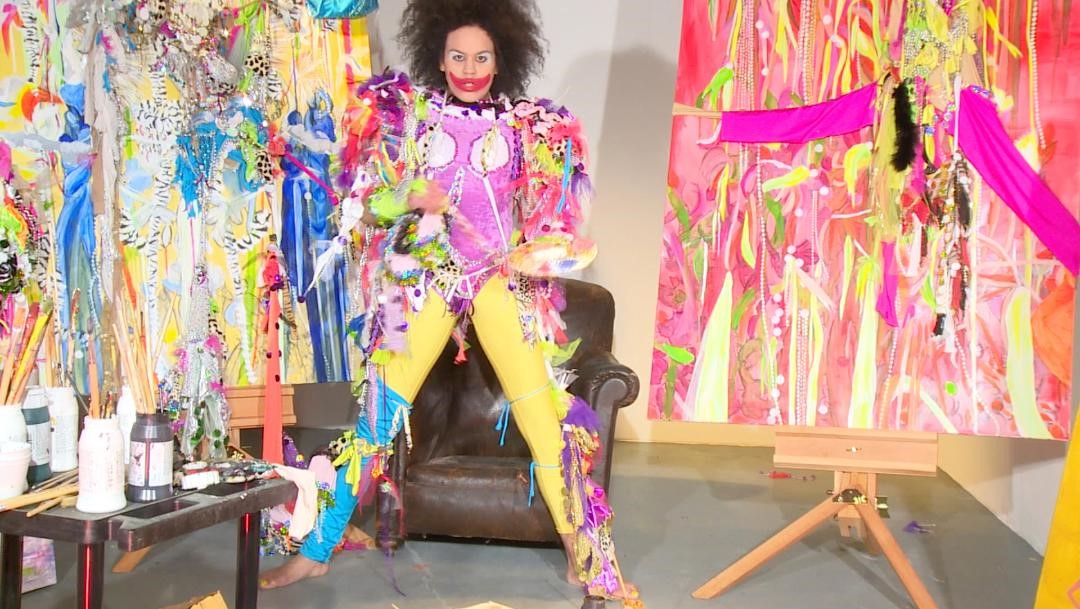 Quilla Constance ‘PUKIJAM’: Digital Video Still, 2015
Quilla Constance ‘PUKIJAM’: Digital Video Still, 2015
SP: Live performances play a key role in your practice, and feature even in your work as a lecturer. What, according to you, is the role of the audience in a live performance or lecture? Is it a one-sided relationship or something that the performer/lecturer and their audience engage in equally?.
QC:I believe a two-way exchange between audience and performer is intrinsic to all live performances/lecturing – however, the best and most interesting live-work urges audiences to feel directly engaged, to experience something different, to feel somewhat agitated or even to become active participants. This, in turn, urges audiences to ask questions about their experience of the performance, long after the event has taken place. I try to avoid delivering pure entertainment in my performances as QC, since this is a long-established formula which relies on a more passive response from audiences. In most commercial theatrical productions, for instance, audiences are not transported very far out of their comfort zones – they are engaged and entertained, but rarely pushed to ask questions about the nature of the exchange/relationship between audience and performer; in this instance, the performers are active and elevated and the audiences are passive and lowered. During my Open Studio workshops at Tate Exchange, Tate Modern, I invited members of the public to become an active part of my performance work; I directly responded to their contributions, and vice versa.
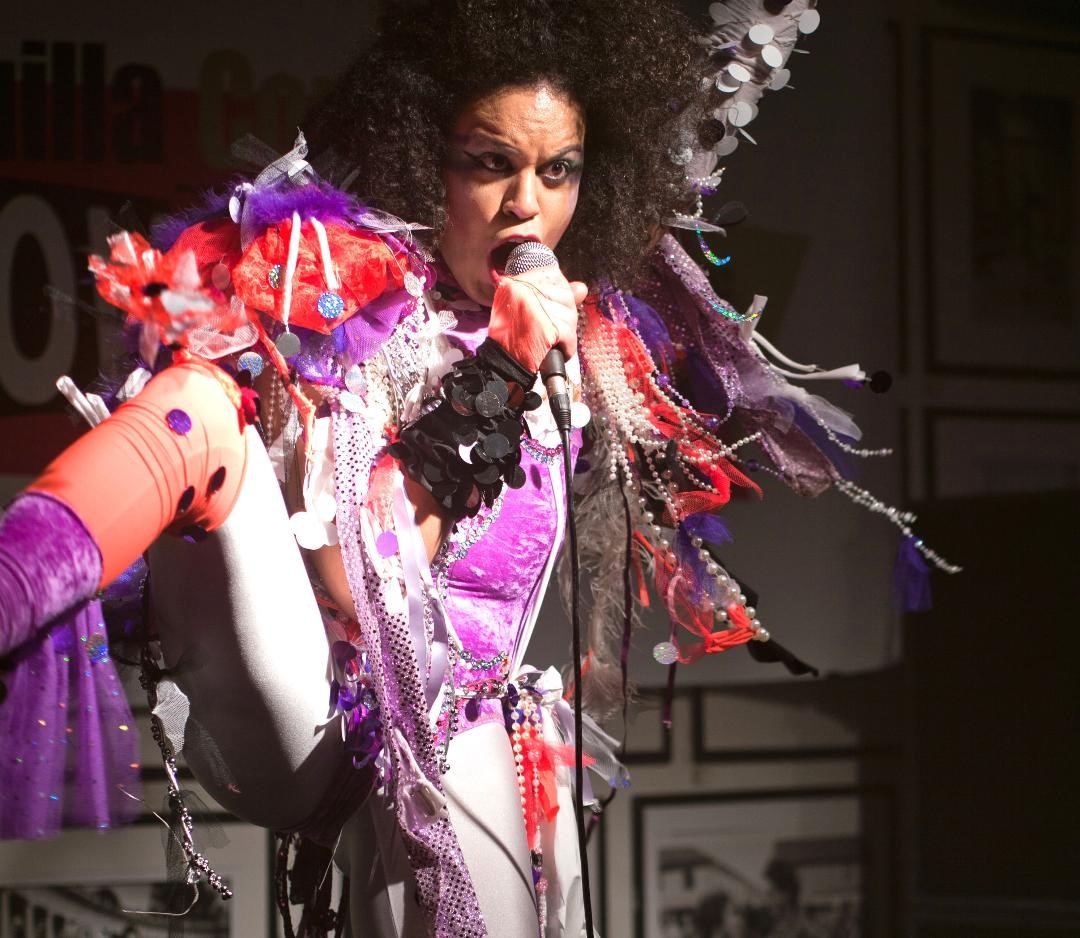 Quilla Constance ‘Live Performance at Proud Camden’, 2011
Quilla Constance ‘Live Performance at Proud Camden’, 2011
SP: You have professionally trained in acting alongside having a BFA and MFA in fine arts. What drew you to the artistic expression of acting in relation to developing your practice?
QC: In 2013, I studied ‘Acting Part-Time’ at Rose Bruford College of Theatre and Performance. I’d always wanted to attend drama school when I was younger but was so busy with other pursuits, I never got round to it. At Rose Bruford, I experimented with channeling aspects of QC into classical roles and worked to hone and develop existing performance skills. As an interdisciplinary artist, it’s always beneficial to have a wide variety of techniques and reference-points to draw from. I see my training at Rose Bruford as akin to introducing extra colors into my palette.
SP: Your alter ego Quilla Constance has been variously described as a ‘militant punk persona’ who ‘virally inserts her artistic practice within pop culture’. What are some aspects within pop culture recently that Constance has interacted with within her work?.
QC:In my view, the category of ‘pop culture’ also refers to entry-level music clubs which showcase aspirational pop acts – and widely accessible online music promotional platforms such as YouTube, iTunes and Soundcloud. I believe that aspiring pop acts belong to the mainstream music industry long before they break into the charts since many of them create music which conforms to or is a close variation of music which already sells. So, when I say I situate my work in pop contexts, I don’t mean I’ve been on tour with Beyonce! – but rather, my interest resides in interrupting the frameworks, rules, and languages of pop by deploying QC as a semblance of pop in music venues, and online. In any case I don’t believe an artist can sustain an effective critique of pop if they operate too close to the nucleus of the mainstream music industry since once an artist crosses into that, there’s an overarching pressure to sell, which gets in the way of genuine dissent and prevents rigorous critique of the industry. I think commercially successful acts end up becoming a pseudo edgy/feminist/activist contrivance instead of what they perhaps could be. At the pinnacle of the commercial pop industry, activism is reduced to mere PR sound bites. However, through QC I have ultimate freedom since I have no interest in selling music to a mass market. QC seeks to operate from a different position – one of rigorous critique and agitation. As well as performing in clubs, historically – i.e. deploying QC as a semblance of pop – I’ve recently been working in collaboration with my music producer, Rafflesian to create the genre-busting music mashups which were played during my Open Studio workshops at Tate Exchange, Tate Modern. These mashups jump in quick succession from formulaic pop, reggae, dubstep, classical, metal, soft rock, samba, punk, country & western, electronica and folk. So, my recent work has focussed to a larger extent on taking pop/mainstream music out of context, and repackaging it to agitate and amuse listeners – i.e – ‘Teasing out Contingencies’ and generating new possibilities for learned modes of expression.
SP: What’s your vision for the future?.
QC:Well, firstly I hope the COVID 19 pandemic subsides ASAP, and we all learn something useful from it – i.e. knowledge which can be used to rebuild societies, with an emphasis on equality. I also look forward to installing my ‘Teasing out Contingencies’ project (painting- costumes-performances-workshops) at Tate Exchange, Tate Modern once lockdown is lifted – inviting people to interact and respond. I will also host a symposium at Tate Exchange, Tate Modern, to discuss the project with guest speakers: Dr. Mo Throp (Senior Lecturer, Chelsea College of Arts, UAL), Dr. Alexandra Kokoli (Senior Lecturer in Visual Culture, Middlesex University), and Adelaide Bannerman (Freelance Curator, Artist, and Writer).
Image Courtesy: Quilla Constance, Simon Richardson, Andrew Crowe, and Omer Kula
Find out more about the artist:
https://www.quillaconstance.com/home/
https://www.quillaconstance.com/teasing-out-contingencies/
https://www.quillaconstance.com/gallery/
https://www.quillaconstance.com/pukijam/
https://www.quillaconstance.com/teasing-out-contingencies/vam_epub-BAM_NOV19_V2_Kokoli_0212.pdf


